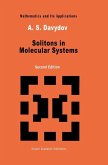This book contains the transcripts of the lectures presented at the NATO Advanced study Institute on "Computational Techniques in Quantum Chemistry and Molecular Physics", held at Ramsau, Germany, 4th - 21st Sept. 1974. Quantum theory was developed in the early decades of this century and was first applied to problems in chemistry and molecular physics as early as 1927. It soon emerged however, that it was impossible to con sider any but the simplest systems in any quantita tive detail because of the complexity of Schrodinger's equation which is the basic equation for chemical and molecular physics applications. This remained the si tuation until the development, after 1950, of elec tronic digital computers. It then became possible to attempt approximate solutions of Schrodinger's equa tion for fairly complicated systems, to yield results which were sufficiently accurate to make comparison with experiment meaningful. Starting in the early nineteen sixties in the United States at a few centres with access to good computers an enormous amount of work went into the development and implementation of schemes for approximate solu tions of Schrodinger's equation, particularly the de velopment of the Hartree-Fock self-consistent-field scheme. But it was soon found that the integrals needed for application of the methods to molecular problems are far from trivial to evaluate and cannot be easily approximated.
Hinweis: Dieser Artikel kann nur an eine deutsche Lieferadresse ausgeliefert werden.
Hinweis: Dieser Artikel kann nur an eine deutsche Lieferadresse ausgeliefert werden.








